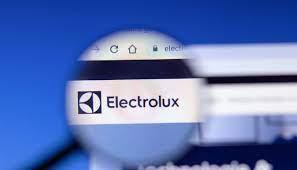
Be climate neutral and drive clean and resource-efficient operations - Electrolux Sustainability Report 2020 (electroluxgroup.com)
Roadmap 2020 to 2030
- Reduce our CO2 footprint by 85% by 2025 (2015 baseline) and achieve climate neutral operations by 2030.
- Improve energy efficiency at our manufacturing sites and warehouses by an additional 12.5% by 2025 (2020 baseline).
- Continue to improve water efficiency at our manufacturing sites by 25% by 2025 (2020 baseline) in potential water risk areas, until the site has reached optimal levels of efficiency.
- Increase the proportion of renewable energy for our operations to 65% by 2025.
- Certify all plants to the Zero Landfill program by 2025.
The case for action
This promise applies to everything we do. We aim to run resource-efficient operations as an integral part of our work by applying industry-leading practices. This reflects our values and what we stand for as a company – being part of the solution is important for both our employees and consumers.
Our approach
Operational resource management – including energy, water, waste and emissions – is coordinated globally with a common process and strategy wherever in the world we operate.
Resource efficiency management
The Electrolux Green Spirit program is our internal resource efficiency program and rating system that includes criteria related to climate, energy and water performance, management, engagement and implemented actions that are reviewed annually. The program is continuously improved to reduce our environmental impact and operational costs. It drives further improvements and promotes the sharing and implementation of best practice among our manufacturing sites.
In addition, our renewable energy target is tracked on an annual basis and reviewed on a Group level. We are raising our level of ambition with renewable energy sources, such as hydro, solar, wind, biomass and biofuel. We also learn from existing on-site renewable installations and explore new projects around the world.
Action plans include energy management, technological investments, employee awareness raising and behavioral change. Every facility reports energy and water consumption data on a monthly basis, and this data is aggregated on a regional and global level against monthly performance indicators. We have both relative and absolute targets for energy consumption.
Our Zero Landfill program has the objective to reduce the amount of waste sent to landfill or incinerated without energy recovery. To achieve this, we work to reduce the waste we generate, and identify opportunities for reusing waste materials.
All manufacturing units with over 50 employees must be certified to the ISO 14001 environmental management system. In addition, we are working to implement the ISO 50001 energy management system at all our manufacturing sites.
Challenges
- Following over a decade of prioritized investments with good payback periods, it is becoming increasingly challenging to realize continuous improvements in energy and water efficiency with acceptable payback periods.
- The coronavirus pandemic is a huge challenge as there is no way of predicting how it will affect our operations.
- Phasing out fossil fuels can be a challenge in high temperature processes due to the lack of technical and economically viable alternatives.










Add new comment